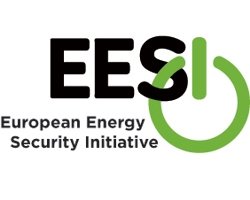Wilson Center Launches European Energy Security Initiative
The Wilson Center's new European Energy Security Initiative will host seminars and fellows to delve into issues critical to Europe's energy dynamics which, in turn, affect the economic and security policies of many parts of the globe.

Energy developments in Europe are increasingly interconnected with global geopolitics. Europe's energy dynamics and policies will shape the economic, diplomatic, and security policies of NATO allies, Russia, China, and the countries of Central and South Asia.
Will Russia's energy exports go to the European Union or East Asia? How will the EU's energy policies affect its ability to meet goals in combating climate change? Such decisions will affect not only Europe, but also global energy dynamics.
To delve into the complex issues surrounding European energy security, the Woodrow Wilson Center's European Studies recently launched the European Energy Security Initiative (EESI). While much of the existing reporting on European energy dynamics comes from an economic or geopolitical perspective, EESI will bring scholarly experts, policymakers, and industry representatives into the mix to provide a more complete picture.
EESI will host a monthly series of events, the European Energy Security Forum, host research fellows, and publish a comprehensive annual report, to be titled, Europe's Energy Future, aimed at U.S. policymakers.
"The Wilson Center, with its globe-spanning programs, is the perfect place to implement such an initiative," said EESI Director Christian Ostermann. "Europe's energy issues do not take place in a vacuum. We plan to look at energy policy from a comparative perspective and, to that end, we look forward to co-sponsoring events with other Wilson Center programs."
The U.S. and European Energy Security
A January 11 Director's Forum featured then Special Envoy on International Energy Affairs for the U.S. Department of State David Goldwyn who described energy security as a matter of national security and an important foreign policy tool.
Goldwyn outlined the five tenets of the U.S. administration's energy security strategy: promoting policies that increase efficient energy use at home and abroad; fostering open and transparent energy markets; diversifying the energy supply and suppliers; investing in new technology; and developing new partnerships toward a collective energy security system.
This envisioned multinational energy collective includes Europe. In the United States, Goldwyn said, high-level talks are occurring to engage suppliers and emerging suppliers across the globe, including in Eurasia. Heightened conversations with the U.S.-EU Energy Council have brought important issues to the forefront, including oil and gas supply, developing markets, and energy efficiency.
One emerging issue is the potential for developing unconventional natural gas sources, known as shale gas, in Europe. "Shale has revolutionized the global gas market," said Goldwyn. "[Natural gas] is in large supply and available on the spot market in Europe and elsewhere."
But will shale gas development revolutionize Europe's energy scenario? Goldwyn responded with cautious optimism, saying that will depend on several factors. Europe has significant shale formations, he said, but it's difficult to know its permeability, maturity, and type until exploration begins. From a geological standpoint, Europe has potential, particularly in Poland, Hungary, Germany, and France, he said. But feasibility of shale will depend on whether Europe attracts the needed investment to exploit the shale and implements regulations to give confidence to investors who would have to sell it. Another unknown is public acceptance in Europe. "Do people want it?" he asked. "We'll see."
As a testament to the importance the United States is placing on the emerging role of Europe in energy security, the State Department has an expert, Ambassador Richard Morningstar, who works full time on this region. Morningstar, the U.S. secretary of state's special envoy for Eurasian energy, spoke at the Wilson Center in October at what was EESI's inaugural event.
Morningstar said the short-term focus is making the existing infrastructure more efficient by improving pipelines in Central and East Europe. He highlighted U.S. efforts to improve the reliability of Ukraine's gas transit system, engage with Russia, develop transit systems for anticipated increases in Kazakh oil production, and coordinate energy security in Central and East Europe. He acknowledged the need to connect existing power networks within Europe and build new storage capacity, which the EU has begun to do.
He also identified the need for new, major energy infrastructure projects, some of which already are underway.
"There is nothing that comes close to matching the reliability and economies of scale that large-capacity, dedicated pipelines or similar fixed infrastructure can provide," Morningstar said.
The near future will be a decisive period for Eurasian energy. One such opportunity is the recently concluded Turkish-Azerbaijani gas purchase/transit agreement that will create a Southern Energy Corridor. It is unclear though whether Turkmenistan will contribute to the Southern Corridor by shipping gas across the Caspian Sea, or if it will focus on other energy export routes. Morningstar said there is a new agreement between BP and SOCAR that could bring additional gas to southern and eastern Europe from Azerbaijan.
Having mentioned all of these potential new projects, Morningstar restated the U.S. support for a Southern Corridor, adding that "although governments will continue to play a role, the markets will decide, or will at least have the strongest voice, in making the decisions involved."
Ultimately, Morningstar said, flexibility will be key in determining which new projects are realized, as changes in the Eurasian energy environment are frequent and "the markets reward those who can best adapt to change when circumstances require it."
EESI Focus Areas
Europe has an intricate web of geopolitical factors affecting its energy security. European dependence on Russian natural gas reserves frustrates EU and NATO unity, while China's thirst for hydrocarbons has made it a major player in the energy-rich Caspian Sea region. Turkey seeks to establish itself as the world's greatest energy hub, while Ukraine suffers regular gas crises and supply disruptions that feed tensions over Western integration.
"Energy development in Europe and its neighborhood is never just a commercial concern," said Alexandros Petersen, adviser to EESI. Russia's resurgence is tied to the use of energy as a domestic and foreign policy tool. EU-backed energy projects are major contributors to the Western integration of the Black Sea-Caspian region. Iran, with the world's second largest natural gas reserves, is left out of the European energy picture. Petersen added, "The Energy Security Initiative will shed light on what the future holds for Europe's energy geopolitics: the strategies of producers and consumers, and the link between energy, conflicts, and political instability."
Another important focus area is environmental security. EU member-states see themselves as global leaders in combating climate change and developing environmentally friendly best practices in industry, government, and broader society. Chinese and Indian decision-makers are increasingly at the forefront of green technology innovation, but Russia and the countries of the Black Sea region and Central Asia are focused on hydrocarbon development, with green concerns only on the margins of the debate.
As Europe becomes increasingly connected with its neighbors, the question of its green future looms large. Decision-makers across the continent will have to consider the shape of a green economy in developed countries as well as some of the world's least developed places. EESI will seek to provide forward-looking analysis of Europe's potential green futures.
In the fast-changing environment of Europe's energy needs, new technology will play a big role. In the past few years, the North American energy landscape has been transformed with the advent of new technologies that allow for the development of shale gas. The United States, once thought to be dependent on liquefied natural gas (LNG) imports, is sitting on top of more than 100 years worth of gas supplies. The immediate effect for Europe is that LNG supplies previously destined for North America are now available for European consumers.
It turns out, as noted earlier, that EU countries also hold potentially huge reserves of shale which, if exploited, could alter the relationship between European consumers and Russian, Caspian, and Middle Eastern producers of natural gas. Major energy players such as ExxonMobil and Gazprom are already investing in the coming unconventional gas revolution in Europe.
EESI will seek to identify and evaluate the potential for new technologies to change the game in European energy. Whether unconventional gas development, deep drilling for oil, or the exploitation of gas hydrates, technological innovation will shape the future of European and global energy security for decades to come.
Related Programs

Global Europe Program
The Global Europe Program is focused on Europe’s capabilities, and how it engages on critical global issues. We investigate European approaches to critical global issues. We examine Europe’s relations with Russia and Eurasia, China and the Indo-Pacific, the Middle East and Africa. Our initiatives include “Ukraine in Europe” – an examination of what it will take to make Ukraine’s European future a reality. But we also examine the role of NATO, the European Union and the OSCE, Europe’s energy security, transatlantic trade disputes, and challenges to democracy. The Global Europe Program’s staff, scholars-in-residence, and Global Fellows participate in seminars, policy study groups, and international conferences to provide analytical recommendations to policy makers and the media. Read more

History and Public Policy Program
The History and Public Policy Program makes public the primary source record of 20th and 21st century international history from repositories around the world, facilitates scholarship based on those records, and uses these materials to provide context for classroom, public, and policy debates on global affairs. Read more










